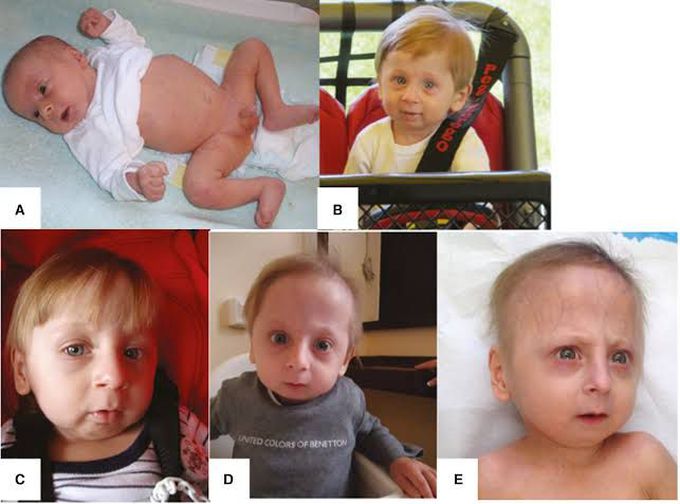


Hutchinson-Gilford progeria syndrome (HGPS)
Background Hutchinson-Gilford progeria syndrome (HGPS) is a rare disease caused by pathogenic variants in the LMNA gene, which leads to premature aging. The median life expectancy is shortened to 13 years due to cardiovascular complications. Case report We present a boy born with a pathogenic LMNA variant c.433G > A, which causes atypical progeria syndrome (APS) and was previously described in one single patient. When investigated for poor growth prior to the diagnosis of APS, his laboratory tests revealed growth hormone (GH) deficiency and magnetic resonance imaging (MRI) of the midbrain showed partial empty sella. GH treatment had only a limited and transient effect. His first ischemic complication manifested at age 4.2 years; at the age of 7 years, he had a fatal haemorrhagic stroke. Conclusion To the best of our knowledge, this is the first patient with APS showing partial empty sella and GH deficiency that might have contributed to his poor growth. GH failed to improve long-term outcome.

